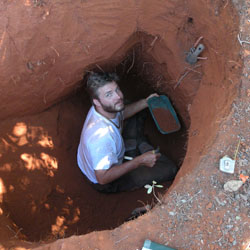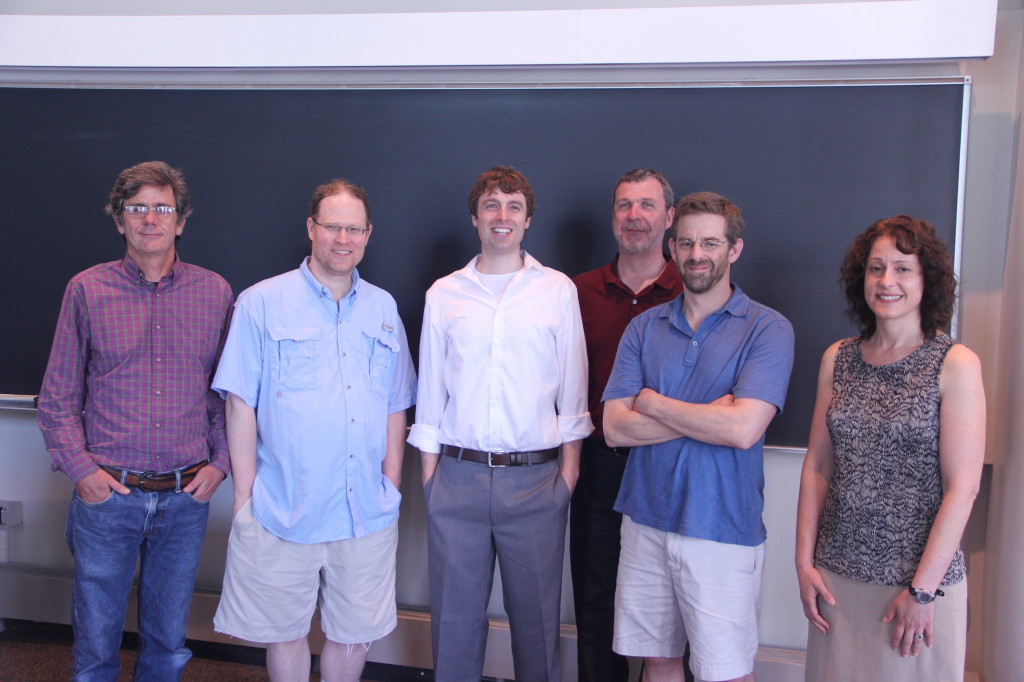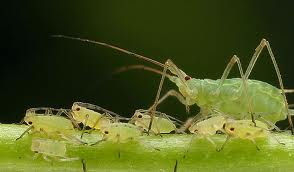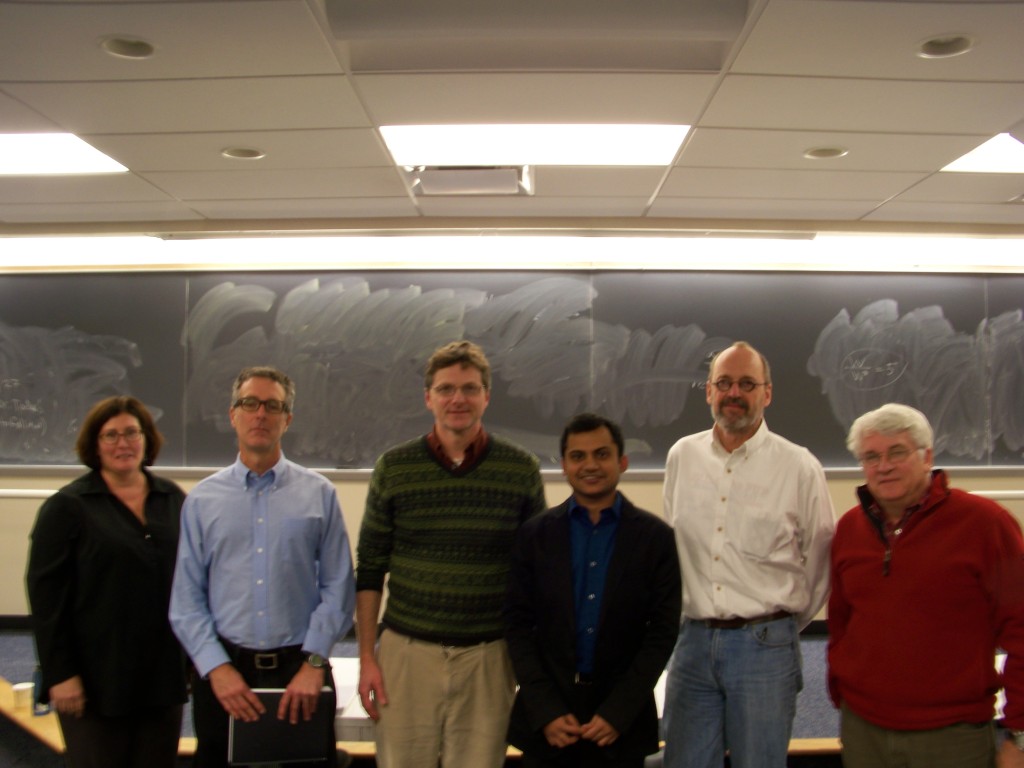
Congratulations to Mahul Chakraborty from the Fry Lab who successfully defended his dissertation on “Adaptive constraint and its natural rescuers: insights from Drosophila aldehyde dehydrogenase.” There will be a party for Mahul on Friday to celebrate!
Category Archives: News
EEB hires two new faculty members
The EEB group is excited to announce the addition of two new faculty members in the near future. Dr. Christian Rabeling uses molecular phylogenetics to study the evolutionary biology of social ants, with a focus on reproductive strategies, social parasitism, and speciation. And Dr. Amanda Larracuente uses genomics, genetics and cytology to study the evolution of selfish DNA in Drosophila, with a focus on sex chromosomes, meiotic drive elements, and satellite DNAs. Dr. Rabeling’s lab will open for business in July 2014, and Dr. Larracuente’s will open in January 2015.
Congrats Dr. Laport!
Congratulations to Rob Laport from the Ramsey Lab who, last week, successfully defended his dissertation on Polyploid speciation in the North American creosote bush (Larrea tridentata: Zygophyllaceae). Rob will be continuing his research as a postdoc in Diana Pilson’s lab
New Paper from the Brisson Lab
There is a new paper from our newest lab, the Brisson Lab, out in G3. The paper reports patterns of widespread selection across the Pea Aphid genome. Check out the paper and make sure to stop by and say hello to the Brisson Lab!
Congratulations, Dr. Ng!
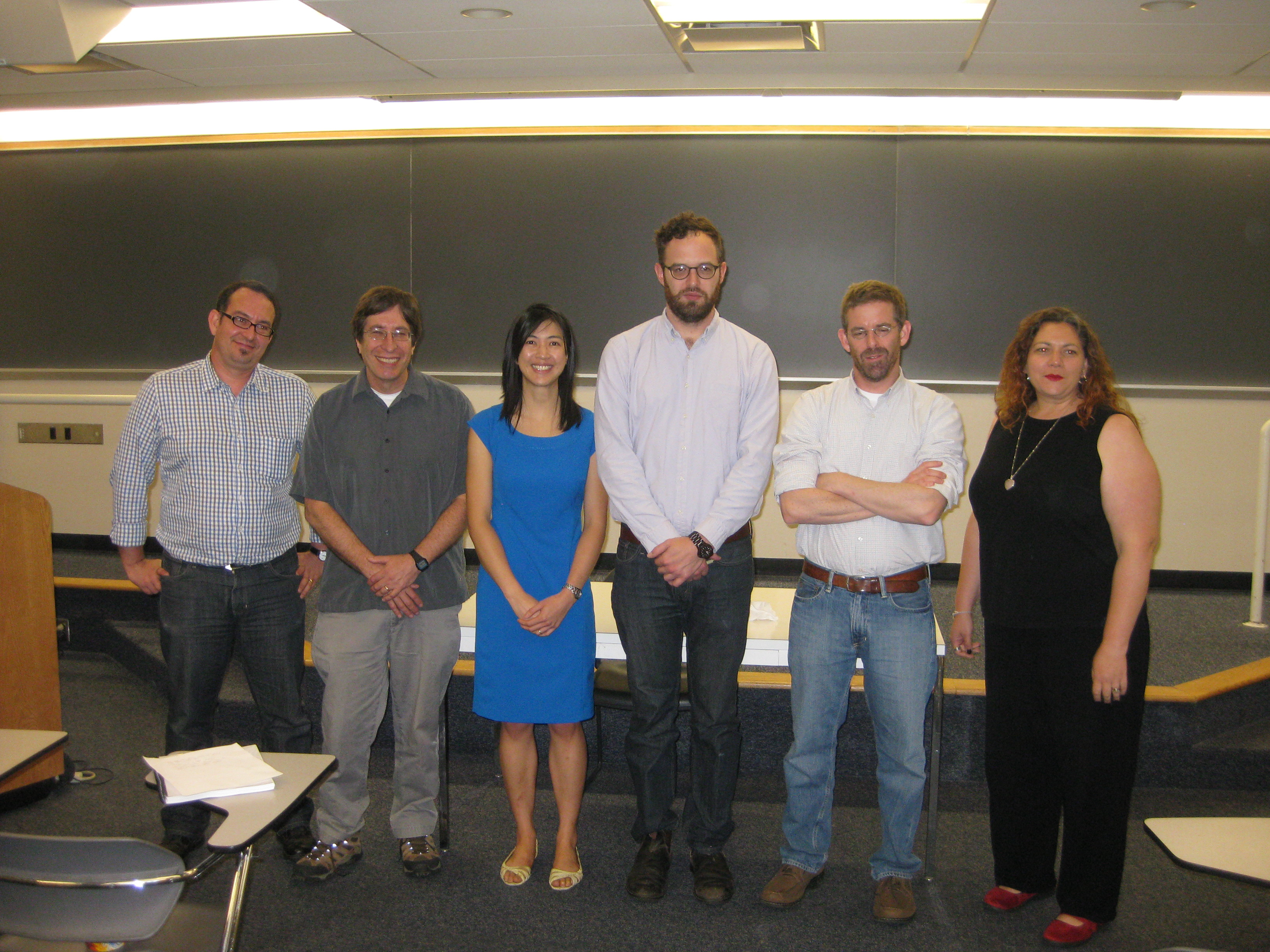 Last Friday, Julienne Ng successfully defended her dissertation. Degree in hand, Julienne will be joining the lab of Stacy Smith as a Postdoctoral Fellow this Fall to study color evolution in flowering plants. Join us all in congratulating Julienne and wishing her the best of luck.
Last Friday, Julienne Ng successfully defended her dissertation. Degree in hand, Julienne will be joining the lab of Stacy Smith as a Postdoctoral Fellow this Fall to study color evolution in flowering plants. Join us all in congratulating Julienne and wishing her the best of luck.
Congratulations Laura
Graduate Invited Speaker
We are now collecting suggestions for the graduate student invited speaker. Have any good ideas of researchers relevant in the EEB field? Email Emily with your speaker suggestion and a few sentences about their research by Friday, May 17th!! In the next few weeks we’ll be voting on these suggestions. Thanks!!
Congratulations Dr. Presgraves!
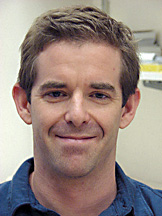 Congratulations to Dr. Daven Presgraves for his promotion to full Professor. In a recent message to the department, chair Dr. Gloria Culver put it best:
Congratulations to Dr. Daven Presgraves for his promotion to full Professor. In a recent message to the department, chair Dr. Gloria Culver put it best:
“The promotion is timely and deserved, and we wish him the best in the years to come!”
That sentiment is shared by everyone in EEB, congrats Daven!
Dr. Dan McNabney
Darwin’s Sleepwalkers: Naturalists and the Practices of Classification
 On Nov. 8th at 5pm Peter Dear from Cornell University will be talking in the Welles-Brown Room of Rush Rhees Library on “Darwin’s Sleepwalkers: Naturalists and the Practices of Classification.” The Humanities Project provides the following blurb on this talk: “Ernst Mayr famously claimed that the practices of classification in natural history underwent no sharp change following the rapid acceptance among naturalists in the 1860s of Darwin’s transformist arguments in the *Origin of Species*. More recently, Polly Winsor has argued for the importance of taxonomy in the development of Darwin’s great theory, in effect, her argument similarly blends taxonomy before and after 1859. Broadly speaking, such positions are surely right: Darwin especially used arguments referring to varieties, species, and genera throughout his writings, and he could hardly have expected his use of these categories to carry any persuasive force if he had reinvented them wholesale. Darwin clearly recognized his reliance on the work of other, non-transformist taxonomists, and needed in effect to explain how their work could have produced just such groupings as his own theory explained through descent with modification. Since these groupings served in many cases as evidence for his theory, they could scarcely be accepted on its basis. Darwin wanted only to reinterpret their meaning, not to undermine the notion of an already achieved natural classification; he wanted to use accepted taxa as data for his theory when only his theory (he thought) could justify them. How could that be, without argumentative circularity? Darwin’s practical solution involved a wholesale naturalization of classification.”
On Nov. 8th at 5pm Peter Dear from Cornell University will be talking in the Welles-Brown Room of Rush Rhees Library on “Darwin’s Sleepwalkers: Naturalists and the Practices of Classification.” The Humanities Project provides the following blurb on this talk: “Ernst Mayr famously claimed that the practices of classification in natural history underwent no sharp change following the rapid acceptance among naturalists in the 1860s of Darwin’s transformist arguments in the *Origin of Species*. More recently, Polly Winsor has argued for the importance of taxonomy in the development of Darwin’s great theory, in effect, her argument similarly blends taxonomy before and after 1859. Broadly speaking, such positions are surely right: Darwin especially used arguments referring to varieties, species, and genera throughout his writings, and he could hardly have expected his use of these categories to carry any persuasive force if he had reinvented them wholesale. Darwin clearly recognized his reliance on the work of other, non-transformist taxonomists, and needed in effect to explain how their work could have produced just such groupings as his own theory explained through descent with modification. Since these groupings served in many cases as evidence for his theory, they could scarcely be accepted on its basis. Darwin wanted only to reinterpret their meaning, not to undermine the notion of an already achieved natural classification; he wanted to use accepted taxa as data for his theory when only his theory (he thought) could justify them. How could that be, without argumentative circularity? Darwin’s practical solution involved a wholesale naturalization of classification.”

